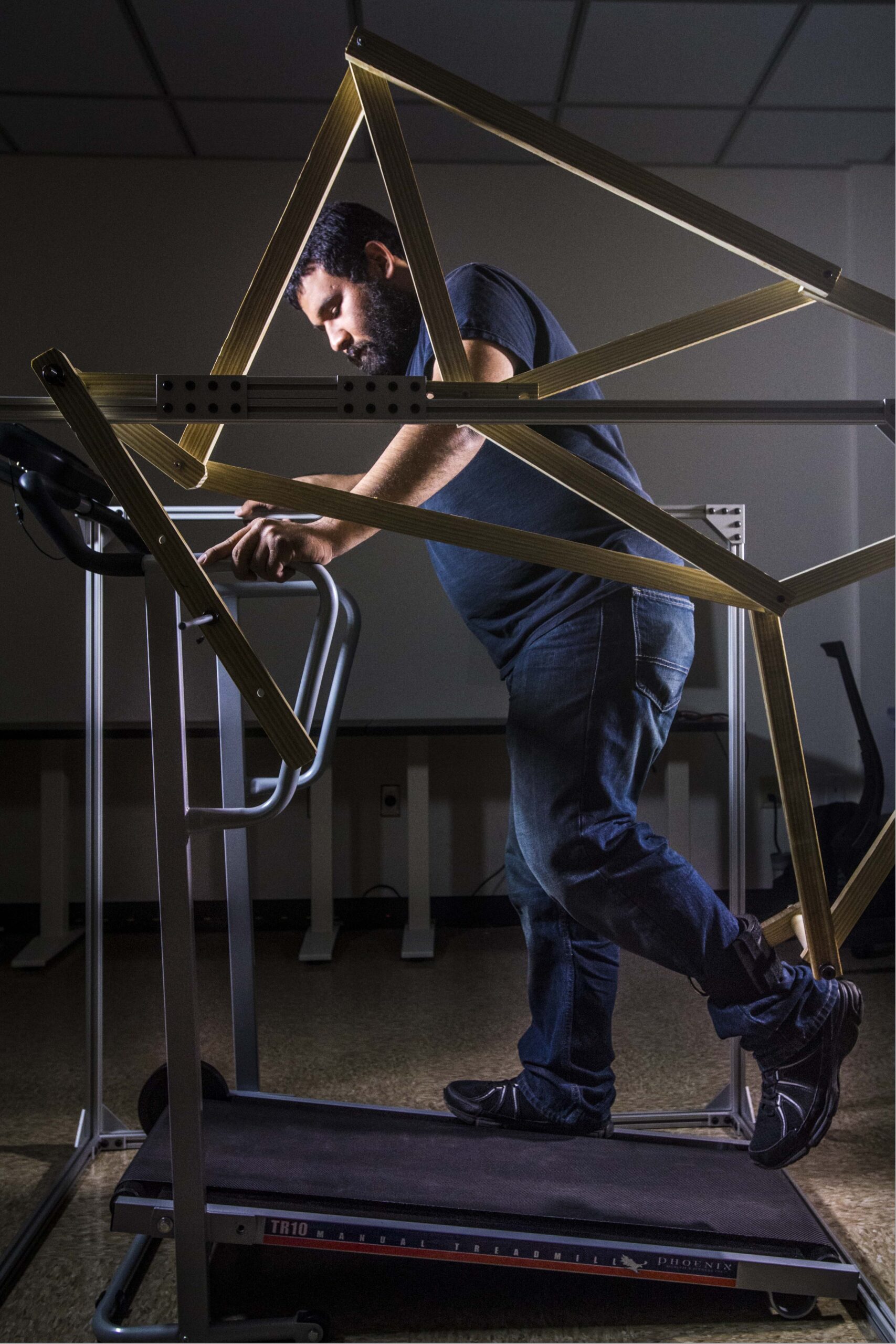
Mendez demonstrates the larger model of the robotic gait trainer. It applies complex knowledge of body kinetics to a low-tech solution for more affordable healthcare.
In 2014 the Seton Brain and Spine Recovery Center came to Cockrell School assistant professor James Sulzer with a problem. Their patients were performing shoulder exercises incorrectly and subjecting themselves to further injury, a particular issue for patients with spinal cord injuries.
“We were looking for a device to help cue the patient when they are overusing the upper trapezius and hiking the shoulder,” says Eric Lantz, an occupational therapist at Seton.
Sulzer and his mechanical engineering students went straight to work, testing lots of ways to address the problem in his lab, known as Rewire.
“We came up with a number of ideas with some complex engineering,” Sulzer says. “In the end, simplicity won out.”
